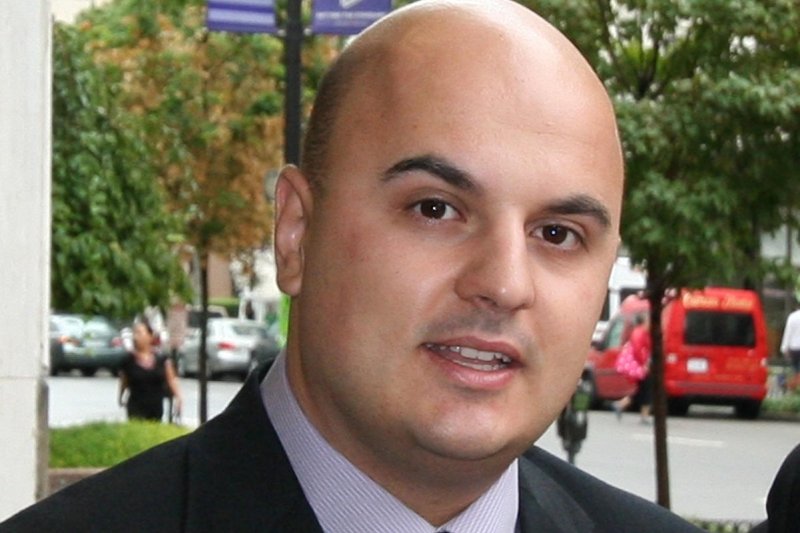Prishtina Produces Enormous Strategic Payoffs
In a tumultuous and geopolitically divided Europe, the axiom “The best, and in some cases, the only defense, is a good offense,” is ever more important. On July 9 – 11 (2024) all 32 NATO member countries gathered in Washington to commemorate the 75th Anniversary of the unmatched military alliance in world history. One significant, determinant fact, skipped by mainstream media, was the unjustifiable absence of the Bulgarian President to NATO Summit.
The President of Bulgaria, Rumen Georgiev Radev, a former military aircraft pilot, did not lead his nation’s official delegation to Washington DC; Radev's refusal emanates from his disagreement on some substantial provisions of the framework approved by Bulgarian Council of Ministers purporting additional commitments in support of Ukraine. In the tragic absence of European Union’s and NATO’s concerted efforts towards appropriate offensive measures that would further embolden Ukraine; Bulgarian head of state has openly expressed a pro-Moscow position in almost every press conference opportunity since the war begun on February 27th, 2014. Rumen has reflected serious vacillations and scoffed at the western democracies every time NATO has requested Bulgaria’s support for the heroic Ukrainian Armed Forces. Bulgaria has been a member of NATO since 2004. Washington welcomed Prime Minister Dimitar Glavchev to attend the 2024 NATO Summit.
On the other side of the spectrum is the single most prominent statesman that Central and Southeastern European regions have had since the end of the Cold War (1989); Albin Kurti.
Prime Minister of Kosova, NATO’s and Washington’s trusted statesman, who has placed a greater emphasis on preemption, is defending oneself by attacking and neutralizing the Serbian terrorist group of 30 heavily armed men, operating in Banjska village and occupying the local monastery on September 24, 2023. About these tragic intermittent armed clashes in Northern Kosova, where Kosova’s police acted with an exceptional level of bravery, professionalism, U. S. Secretary of State Antony J. Blinken, stated: “The United States strongly condemns the coordinated violent attacks on the Kosovo Police near the Banjska Monastery on September 24, and expresses deep condolences to the family of the Kosovo Police sergeant killed in the line of duty.? The perpetrators of this crime must be held accountable via a transparent investigative process. We call on the governments of Kosovo and Serbia to refrain from any actions or rhetoric which could?further inflame tensions and to immediately work in coordination with international partners to de-escalate the situation, ensure security and rule of law, and return to the EU-facilitated Dialogue. The United States recognizes and respects the Kosovo Police’s role as first responder in emergency and crisis situations.”
As stated by Dr. Kolë Krasniqi, in the monastery of Banjska were seized a large cache of weapons valued at over 5 million Euros. Kosova’s police found 29 rocket launchers, 24 vehicles suitable for mountainous terrain, two armored trucks, 8 land mines, 8 antitank mines, 5.5 kg of plastic explosive.
Given the constant regional turmoil caused by Serbian chauvinists and armed terrorists, the political leadership of Prishtina has been consequential and a loyal partner of NATO and Trans-Atlantic strategic defense alliance; representing a unique determination that Bulgaria’s head of state has intentionally underestimated and clenching on Moscow’s belligerence.
Prime Minister Kurti is a pre-eminent statesman in a geopolitically fractured Europe. He is not just a policymaker, Kurti has emerged as a top-notch strategist who thinks about the world in conceptual terms and draws on a nuanced understanding of history, geo-economics and geopolitics to guide Albanians’ statecraft on both sides of Kukës. Prishtina’s renowned Prime Minister, whose strategic vision bode well for Tirana’s economic and political perspectives; has emerged as the fulcrum of foreign policy framework for the Albanian nation and the two governments as well.
According to well-known Kosovo analyst Sadri Ramabaja, for 2023, the geopolitical keywords were ‘coordination’ and its antipode ‘miscoordination’ joined by “Open Balkan” and “Serbian world”. “Naturally in the political semantics is included “Albanian Federation” as the juxtaposed concept of “Serbian World”. These principal concepts represent the ongoing crises that directly affect the daily economic interests, lives of Albanian citizens on both Republics and throughout the Albanian indigenous geography (North Macedonia, Montenegro and Southern Serbia [Preshevë, Bujanoc, Medokë and Sanxhak],” said Ramabaja.
Nonetheless, our century’s main political concept of “Albanian Federation” has a solid and unwavering future, enabling Kosova and Albania to pivot from their ruthless post-communist heritage and promote international stability.
*Albanian-American analyst; the opinions and views expressed are the author’s only













